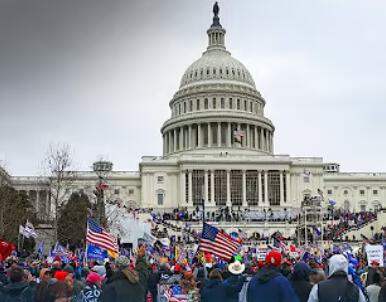
Breaking News
 New Blogs about Ian Freeman's Appeal
New Blogs about Ian Freeman's Appeal
 "Where Is Everyone?" - China's Cities Are Empty, Funerals Outnumber Weddings 17 to 1
"Where Is Everyone?" - China's Cities Are Empty, Funerals Outnumber Weddings 17 to 1
 Telegram's Durov Reveals French Intelligence Requested Romanian Election Censorship
Telegram's Durov Reveals French Intelligence Requested Romanian Election Censorship
 If the public becomes aware of what is being sprayed on them…
If the public becomes aware of what is being sprayed on them…
Top Tech News
 Cavorite X7 makes history with first fan-in-wing transition flight
Cavorite X7 makes history with first fan-in-wing transition flight
 Laser-powered fusion experiment more than doubles its power output
Laser-powered fusion experiment more than doubles its power output
 Watch: Jetson's One Aircraft Just Competed in the First eVTOL Race
Watch: Jetson's One Aircraft Just Competed in the First eVTOL Race
 Cab-less truck glider leaps autonomously between road and rail
Cab-less truck glider leaps autonomously between road and rail
 Can Tesla DOJO Chips Pass Nvidia GPUs?
Can Tesla DOJO Chips Pass Nvidia GPUs?
 Iron-fortified lumber could be a greener alternative to steel beams
Iron-fortified lumber could be a greener alternative to steel beams
 One man, 856 venom hits, and the path to a universal snakebite cure
One man, 856 venom hits, and the path to a universal snakebite cure
 Dr. McCullough reveals cancer-fighting drug Big Pharma hopes you never hear about…
Dr. McCullough reveals cancer-fighting drug Big Pharma hopes you never hear about…
 EXCLUSIVE: Raytheon Whistleblower Who Exposed The Neutrino Earthquake Weapon In Antarctica...
EXCLUSIVE: Raytheon Whistleblower Who Exposed The Neutrino Earthquake Weapon In Antarctica...
 Doctors Say Injecting Gold Into Eyeballs Could Restore Lost Vision
Doctors Say Injecting Gold Into Eyeballs Could Restore Lost Vision
FBI Agents Beg Court to Destroy List Before 'Shame' Campaign

In response, a group of FBI agents involved in the Jan. 6 investigations asked a judge to destroy a Trump administration list containing the names of roughly 5,000 agents tied to the probes.
A group of FBI agents involved in the Jan. 6 investigations asked a judge Thursday to destroy a Trump administration list containing the names of roughly 5,000 agents tied to the probes.
Their move follows Ed Martin's vow, as the newly appointed weaponization czar, to "name" and "shame" the thousands of agents who helped crack down on more than 1,000 Americans allegedly involved in the Jan. 6, 2021, protests.
The anonymous agents told U.S. District Judge Jia Cobb that Martin's public pledge signals the federal government plans to release the list. They first sued in February, asking the court to destroy or seal the roster.
Their Thursday filing came after Martin promised at a Tuesday press conference to hold the agents accountable for destroying the lives of more than 1,000 Jan. 6 defendants.
"There are some really bad actors, some people that did some really bad things to the American people. And if they can be charged, we'll charge them. But if they can't be charged, we will name them. And in a culture that respects shame, they should be people that are ashamed. And that's a fact. That's the way things work. And so that's, that's how I believe the job operates."



